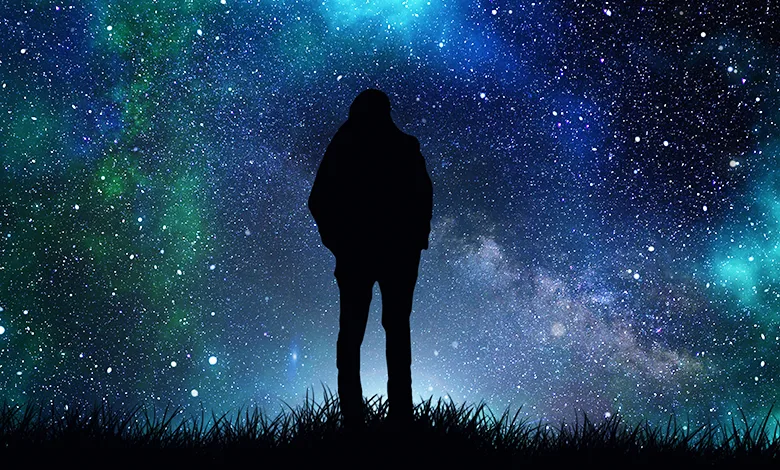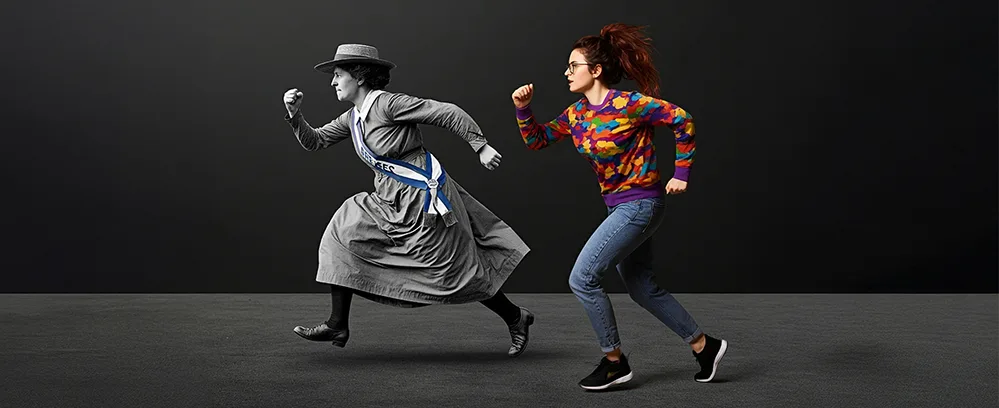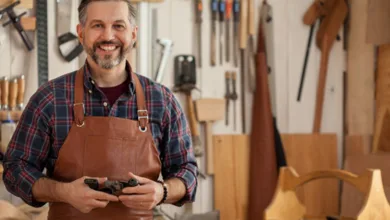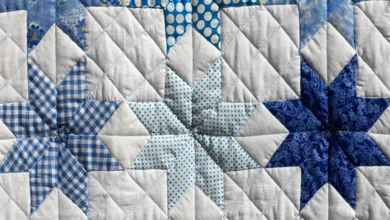
On clear evenings, I often look up to the heavens. Sometimes, I spot a slow-moving satellite, a shooting star, and often a dazzling moonscape. This reminds me of how tiny we are within the vast cosmos and how lucky we are to be in this place now. Thoughts percolate: Why am I here? Why now? How do we answer these questions? Telling our stories is a good way to begin.
The Baby Boomer era: prosperity and change
I am part of the Baby Boomer generation. We mostly grew up in post-World War II suburbia, the first generation shaped by the post-industrial, post-war, post-Depression era. Our parents wanted sunshine and happiness for their children, promising us a better life than they had endured. It was a time of plenty for workers and their families — a time of one-income households (think Ward Cleaver) with “Betty Crocker” mothers and three children.
We played outside until dark. Our days were spent in “analog” activities: climbing old apple trees, cutting out paper dolls, playing a pick-up baseball game in the vacant field, and catching frogs in the summer in the same pond where we ice skated in the winter. There were few televisions in our neighborhood.
Teachers ruled in public schools, and parents always sided with them. Most of my elementary school teachers were maiden ladies who were 1000 years old — or at least they appeared that way. You didn’t dare cross them. We had classes in either art or music daily. There were no after-school activities. Children walked or took the bus home, where our mothers were waiting for us, snacks ready in the kitchen.
At school, we were served hot lunches that were mysterious variations of what we ate at home: a vegetable, a rounded scoop of mashed potatoes, and “meatloaf” with salty brown gravy. Lunches at home featured Kool-Aid and bologna sandwiches. Mom and the girls wore hats and white gloves to worship services; Dad and the sons wore ties. Each family had one car, which Dad usually drove to work. Our house had two or three bedrooms, one bathroom, one telephone, and one push lawnmower shared with a neighbor. We weren’t rich but had everything we needed. Our future was orderly and bright.
Witnessing history: Kennedy’s assassination to the moon landing.
I remember standing on the soccer field when a classmate announced that President Kennedy had been shot. Even as a teenager, I understood that the assassination was the end of something and the beginning of something else. A decade of civil unrest followed. My sunny, post-war suburban world was shattering.
As a child, I pictured space travel in “Flash Gordon” comic book scenes, which made the impact of the July 1969 Moon Landing so vivid in my memory. I watched Neil Armstrong’s “One Small Step…” walk on live television with friends in Chicago. “We beat the Russians to the moon!” It was a glorious moment. At that time, NASA was the leader in space technology, funded by the federal government. Today, advanced space technology has largely been outsourced to private enterprises. Along the way, space travel lost its magic. Gone are the “must-see” evening updates on life in the space capsule aboard the Apollo flights; today, we see sound bites about how much a wealthy tycoon paid to blast off in a spaceship with which celebrity. Was the 1986 Challenger explosion the inflection point? Did the deadly reality of space travel become too real for us or merely too expensive?

A changing world: Vietnam, women’s rights, and social change
I was at the 1965 Newport Folk Festival when Bob Dylan upended the folk music movement with one 15-minute electric guitar performance. I also witnessed protests in Chicago during the 1968 Democratic Convention. I was shocked by what I observed. Both events transformed my orderly world into a new, chaotic dimension – not realizing at the time how consequential both would be.
During civil rights protests, several of my college friends married in their first or second year to qualify for a draft deferment. These were scary times for my contemporaries. Vietnam was far away but still too close for comfort. Students blamed the military itself for the ongoing war and booed the returning vets. Rambo memorialized the adversarial attitude. World War II veterans ran the federal government then and were surprised by such negative public opinion. Never mind that the government lied to the public about its actions there.
While in college, several of my friends had jobs that allowed them to work through college and graduate debt-free. This is nearly impossible to do now. Not one of my college friends had a credit card, and there was no such thing as a student loan. I still remember receiving my first solicitation to open a credit card account: the credit limit was $250, which felt like an enormous amount of money at the time. I was thrilled to establish credit apart from my parents. Having a credit card was a huge step toward adulthood.
With the disintegration of my “perfect world” upbringing, I realized these stories must be told. Like those of every writer, filmmaker, musician, and artist of this era, my words are a testament to our time. We are witnesses who provide the context that helps the rest of us connect the dots. What changed, and how? Where was the turning point? Why does this matter?
I started journaling to find answers—
Consider the change in women’s status. My mother could vote but couldn’t apply for credit without her father or husband as a co-signer. Her career choices were limited to three paths: teacher, secretary, or nurse. When I started working in media in the early 1970s, there were no female sales representatives, and men held all sales, production, and on-air news jobs.
Today, more female college students graduate than their male counterparts, and women hold influential positions in the military and workforce. Meanwhile, the rise in women’s status has led to unintended consequences. If women are filling jobs, then men are not. Some view this change negatively and would like to return to a patriarchal system. Is that even possible now, considering the freedoms women have fought for and come to enjoy?
The internet, media, and the stories we share
The internet has had the greatest impact of all the transformations in my lifetime. I have gone from saving green stamps so my mother could buy TV tables to scanning QR codes. Check writing is a thing of the past, and credit cards, apps, and Zelle have replaced cash.
Social media delivers the news to most of us nowadays. While I was working in television, one network folded its news department into the entertainment division. We were all insulted that they would regard “news” (which is supposed to be objective and fact-based) in the same breath as “entertainment” (whose emphasis is the entertainment value, not the accuracy of underlying facts).
So, here we are today—traditional media outlets that adhere to fact-based reporting struggle while entertainment outlets, including social media, reign. Performance art carries more value than reality, even in “reality shows.” If content is presented as news, it must be true, right? It is no wonder we are confused by what we see and hear.
Yet we are all interconnected by the Internet, which has allowed us to keep in touch with friends and family who live far away. Ordering online has changed the way we shop, saving us money and time. On the negative side, however, whatever personal information you provide on websites and social media platforms stays forever and can be retrieved by others. We choose convenience over potential risk.
This is the human staring into the heavens. We are tiny witnesses to our time and must record it. We cannot turn back the clock, but we can hope for better times. Tell your stories and make them a part of history for future generations.






